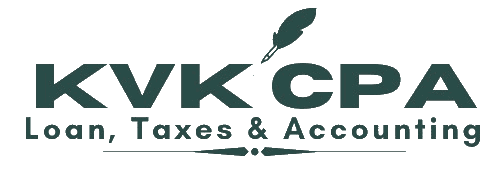Incorporation in Canada

Introduction to incorporation in Canada
Incorporation is the process of legally creating a business as a corporation. Incorporating a business in Canada can provide certain benefits, such as limited liability protection for the owners (also known as shareholders) and potential tax advantages.
Benefits of Incorporating in Canada
There are several advantages to incorporating a business in Canada:
- Limited liability protection: Incorporating creates a legal entity separate from the owner, which can protect the owner's personal assets if the business incurs debt or faces legal action.
- Tax benefits: Incorporating may offer tax deductions and credits that are not available to sole proprietors or partnerships.
- Increased credibility: Incorporating can improve credibility with customers, suppliers, and other stakeholders, which can be helpful for businesses seeking funding or partnerships.
- Easier transfer of ownership: Incorporating makes it simpler to transfer ownership through the sale or transfer of shares. This can be useful for businesses planning for succession or bringing on new partners or investors.
- Perpetual existence: Incorporating creates a legal entity that can continue beyond the lifespan of the owner or founders, which can be useful for businesses planning for long-term growth or ensuring continuity in the event of the owner's death or departure.
Establishing a business in Canada:
To establish a business in Canada, you'll need to follow these steps:
- Choose a business name: You will need to choose a unique business name that is not already being used by another business. You can check the availability of business names by searching the internet to find similar matches. However, still there can be rejection if the name already exist.
- Obtain any necessary licenses and permits: Depending on the nature of your business, you may need to obtain licenses or permits in order to operate legally. These may include licenses for things like selling alcohol or tobacco, operating a food establishment, or conducting certain types of financial transactions.
- Comply with tax requirements: You will need to register for and pay any applicable taxes, including income tax and GST/HST. You may also need to file tax returns and other paperwork with the government on a regular basis.
- Follow any other legal requirements: Depending on the nature of your business, you may have other legal requirements to meet, such as obtaining insurance or following specific safety regulations.
- Set up your accounting system: You will need to set up a system for tracking your business's financial transactions, including income, expenses, and profits. This may involve hiring an accountant or setting up accounting software.
Documents and fees needed for incorporation:
In general, you may need the following documents and fees:
- Articles of incorporation: This document outlines the basic information about the business, including its name, purpose, and the names and addresses of the directors and incorporators.
- Bylaws: This document outlines the rules and regulations that will govern the operation of the business.
- Incorporation fee: This fee is typically paid to the province or Canada Government in which the business is being incorporated and is required to process the articles of incorporation.
- Registered Professional Price: Some province require businesses to appoint a registered agent, who is responsible for accepting legal documents on behalf of the business. A price may be required to appoint a registered accountant or CPA.
- Annual report fee: Each year federal company needs to file annual return by paying $12.
- Business license: Depending on the type of business and the location in which it is operating, a business may need to obtain a business license or permit. There may be a fee associated with obtaining this license. (for example, Medical Professional, Mortgage Agents, Insurance Agents, Real Estate License etc.).
Ongoing obligations of a corporation in Canada
There are several ongoing obligations that a corporation must fulfill in Canada. These obligations include:
- Filing annual returns and financial statements: Corporations are required to file annual returns and financial statements with the Canada Revenue Agency (CRA) and the provincial government.
- Holding annual meetings: Corporations must hold annual meetings of shareholders and directors.
- Maintaining records: Corporations must maintain accurate and up-to-date records, including financial records, meeting minutes, and other relevant documents.
- Paying taxes: Corporations are required to pay various types of taxes, including income tax, sales tax, and payroll taxes.
- Complying with regulations: Corporations must comply with various regulations and laws, including those related to the environment, health and safety, and employment.
- Maintaining corporate status: Corporations must take steps to maintain their corporate status, such as paying any fees or charges required by the government.
It is important for a corporation to fulfill these obligations in order to maintain its legal status and avoid potential fines or penalties.
Tips for success after incorporation
Here are some tips to help your business succeed after incorporation:
- Develop a strong business plan: A business plan outlines your goals, target market, and strategies for achieving success. It will also help you secure funding and attract investors.
- Establish a clear brand identity: Your brand identity includes your company's name, logo, and messaging. It should accurately reflect the products or services you offer and differentiate you from your competition.
- Build a professional network: Building a network of industry professionals, advisors, and mentors can provide valuable guidance and connections as you grow your business.
- Secure funding: Incorporating your business can make it easier to secure funding, whether through loans, grants, or investors. (At KVK CPA, we have helped many new businesses to obtain financing to purchase equipment's, leasehold improvement and obtain working capital. Connect with us to evaluate potential funding we can get you from top Banks)
- Stay organized and keep accurate records: Proper record-keeping is essential for any business, and it's especially important after incorporation. Keep track of your financial records, contracts, and other important documents to ensure that your business runs smoothly.
- Stay focused and adaptable: Building a successful business takes time and effort, and you will likely face challenges and setbacks along the way. Stay focused on your goals and be willing to adapt and pivot as needed to stay on track.
Frequently asked questions
Here are some frequently asked questions about incorporating a business in Canada:
How much does it cost to incorporate a business in Canada?
The cost of incorporating a business in Canada depends on the type of corporation you choose to form and the province in which you plan to incorporate. In general, the fees for incorporating a business in Canada range from around $200 to $1,000. You may also need to pay ongoing annual fees to maintain your corporation
Can I incorporate my business online?
Yes, you can incorporate your business online in Canada through various online incorporation services. These services generally allow you to choose your business name, file your articles of incorporation, and handle any necessary paperwork and fees electronically. However, it is important to carefully research the reputation and reliability of any online incorporation service you are considering using.

